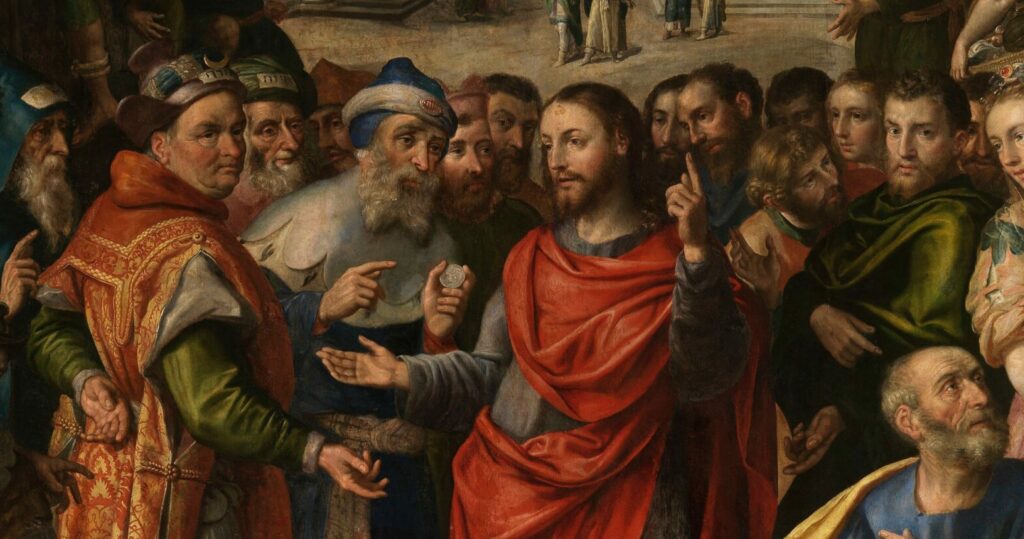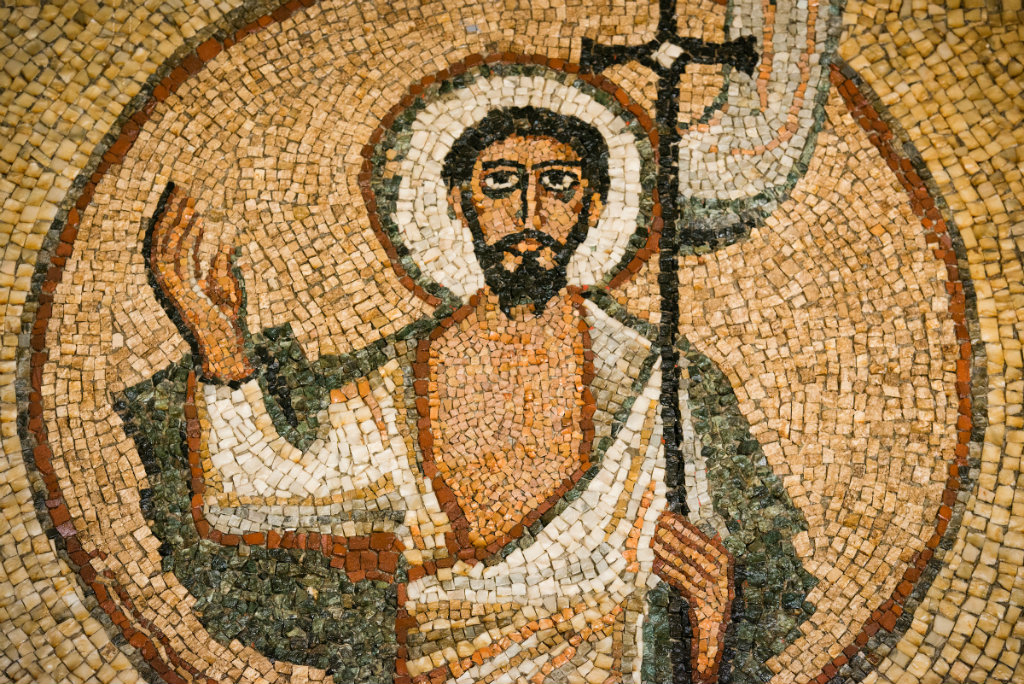by Kendall A. Davis
“Savior.” “Lord.” “Son of God.” If you asked someone in the ancient world who these titles referred to, they might tell you “Jesus.” But depending on who you were talking to, they might also tell you “Caesar.” Modern readers of the Bible often miss the fact that some of the language the New Testament uses to talk about Jesus was also commonly used to talk about the Roman Emperor, who was not just a political leader, but someone whom people worshipped and even offered sacrifices to.
To offer just a few examples, we know from various ancient inscriptions carved into stone that Roman emperors throughout the first century were often called “savior of the world.”[1] Josephus, a Jewish writer in the late first century AD, tells us about a group Jews in Egypt who were tortured and executed because they refused to call Caesar “Lord” (Jewish War 7.418–19). Likewise, Roman emperors were commonly known as “god,” “god of god,” or “son of god.” In the Greek city of Thespiae one could read the following words of dedication: “To the only ruling Caesar, the son of god, the savior, and benefactor.”[2]
This is the world that the Gospel of Jesus was initially proclaimed in. This is the world that the New Testament was written in. Thus, when the first Christians proclaimed Jesus as “Lord,” “Savior” and “Son of God,” people noticed that they were proclaiming a different “Lord,” “Savior” and “Son of God” than Caesar.
Of course, it’s true that New Testament writers often taught Christians to “honor the emperor” (1 Peter 2:17), and you won’t see New Testament writers going out of their way to pick a fight with the emperor by saying something like, “Jesus is Lord, but the emperor is not!” Nevertheless, the people who heard apostles like Paul preaching the Gospel sometimes made the connection all on their own. When Paul was preaching in the synagogue of Thessalonica, a group of Jews became so mad that they began to accuse Paul before the local authorities, saying, “These men … have turned the world upside down … and they are all acting against the decrees of Caesar, saying that there is another king, Jesus” (Acts 17:6–7). By proclaiming Jesus as the ultimate king over the whole world, Paul was in conflict with the claims of Caesar. There can only be one savior of the world, only one king over all the earth.
You can see this in the Gospels when the Jewish council brought Jesus before Pilate; they told Pilate that Jesus claimed to be a king (Luke 23:2). They knew that Pilate would understand why this was a problem. This issue is crystal clear in John’s account. When Pilate wanted to release Jesus, the Jewish leaders told him, “If you release this man, you are not Caesar’s friend. Everyone who makes himself a king opposes Caesar. .… We have no king but Caesar” (John 19:12, 15). They understood what the stakes were.
Jesus Is Greater than Caesar
One thing that we have to understand is that in the Roman Empire, the basis of government was not the will of the people. Nobody thought, like we do, that the right to rule comes from the “consent of the governed.” In those days, people assumed that those in power ruled by the consent of the gods. So long as the gods were happy, kings and their people would be prosperous. If the gods were unhappy, then both kings and the people would come to ruin. What’s more, people didn’t think that the emperor (and other kings) were just political rulers. Many people really thought that these rulers were somehow divine. They would not only call the emperor a god or son of god, but they would offer sacrifices and even prayers to the emperor. Some small towns and cities, especially in the eastern part of the empire, would even set up altars dedicated to the current emperor where they would offer sacrifices.
It’s no wonder then that people thought that Christians were bad citizens of the Roman Empire. Not only did Christians refuse to offer prayers and sacrifices to the emperor, but they also refused to acknowledge the gods who gave the emperor his power. Many upstanding, traditional, gods-fearing Roman citizens were concerned that if too many people started following this strange, eastern religion from Judea, then the gods would get angry, and the whole empire would suffer for it.
Christian claims fundamentally undermined the Roman state and the Roman emperor. They proclaimed a different lord, the Lord of heaven and earth. They acknowledged a different savior, the savior who died for the world on a cross. They worshipped a different son of god, the Son of God who was God’s Son since before the world began, who invited people of all nations to become God’s adopted children through Baptism. Ancient Christians acknowledged that Caesar was only a pale imitation of what Jesus really was. Caesar was just a man. He could not really save anyone, not in an eternal way. He ruled with God’s consent (Rom. 13:1–7), but that didn’t mean that Caesar could do whatever he wanted. It meant that he ruled at God’s pleasure, and God could remove him whenever He wanted, as indeed happened to King Herod (Acts 12:20–23).
And Today?
Christians today live in a very different world. While some today might get too worked up over their favorite (or least favorite) politicians, you’ll be hard-pressed to find anybody praying to the president or dedicating an altar to him in the middle of their town square and sacrificing a bull to him. But that doesn’t mean that people today aren’t tempted to see politicians as idols. Consider Luther’s explanation to the first commandment in the Large Catechism: “A god means that from which we are to expect all good and in which we are to take refuge in all distress. So, to have a God is nothing other than trusting and believing Him with the heart. … Whatever you set your heart on and put your trust in is truly your god” (LC I 2–3).[3] People in the ancient world did this in a rather obvious and ostentatious way, but we do it too. We wouldn’t say it this way, but we are tempted to see politicians as our saviors, whenever we put our trust in them in times of distress.
Thus, the message of Scripture is as relevant today as it was 2000 years ago: There is only one Lord. There is only one Savior. There is only one Son of God. Jesus. Nobody else even comes close.
To be sure, we have problems in our country that good politicians have the responsibility to address. It is good to pray to God and ask for good and faithful leaders and to vote for them when they run for office. Yet we do so while remembering that bigger than any problem a politician might address is the problem of sin and death. Jesus is the only one who’s done something about that. Jesus died, rose again, and now lives and reigns for all time. Jesus is our true king.
[1] See Craig R. Koester, “‘The Savior of the World’ (John 4:42),” Journal of Biblical Literature 109, no. 4 (1990): 667.
[2] This transcription can be found in Lily Ross Taylor, The Divinity of the Roman Emperor (American Philological Association, 1931), 271. Translation is the author’s own.
[3] Translation from Concordia: The Lutheran Confessions, ed. Paul Timothy McCain, 2nd ed. (St. Louis: Concordia, 2006).
Cover image: “Then give to Caesar what is Caesar’s,” Maerten De Vos, 1602.





“Put not your trust in princes,
in a son of man, in whom there is no salvation” (Psalm 146:3).